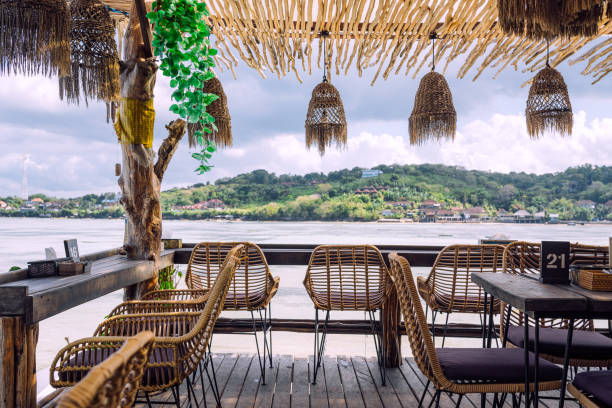Can a Foreigner Open a Restaurant in Bali? A Complete Legal Guide



Bali’s vibrant tourism industry makes it an attractive destination for entrepreneurs looking to start a restaurant. With its mix of international visitors and a growing expatriate community, the island offers numerous opportunities for food and beverage businesses. However, as a foreigner, there are specific legal and regulatory requirements you must meet before launching a restaurant in Bali. Understanding these regulations is crucial to ensuring a smooth business setup and avoiding legal complications.
Legal Framework for Foreigners Opening a Restaurant in Bali
Foreigners cannot directly own a business in Indonesia unless they follow the appropriate legal structures. In Bali, the most common way for a foreign investor to establish a restaurant is through a PT PMA (Foreign-Owned Limited Liability Company). This entity allows foreign ownership but comes with specific investment and operational requirements.
Establishing a PT PMA for Your Restaurant
Investment Requirements
The minimum capital investment required for a PT PMA in the restaurant sector is IDR 10 billion (approximately USD 650,000), including working capital.
At least 25% of this amount (IDR 2.5 billion) must be paid up upon establishment.
Ownership Structure
A PT PMA can be 100% foreign-owned, but in certain sectors, local partnerships may be required.
If needed, a local nominee arrangement can be established, but it is crucial to have a legally binding agreement to protect foreign investors.
Business Licenses and Permits
Business Identification Number (NIB) – This is obtained through the Online Single Submission (OSS) system and serves as your company’s registration.
Restaurant Operating License – Issued by local authorities, this is mandatory for any establishment serving food and beverages.
Building Permit (PBG) – If constructing or modifying a property, compliance with local building regulations is necessary.
Alcohol License – If your restaurant plans to serve alcoholic beverages, you must obtain the appropriate permits from the Indonesian government.
Environmental and Health Permits – Your establishment must meet local hygiene, sanitation, and waste management regulations.
Choosing the Right Location for Your Restaurant
Selecting a suitable location is key to the success of your restaurant. Some areas in Bali, such as Seminyak, Canggu, and Ubud, attract high foot traffic from tourists and expatriates. However, each location comes with its zoning laws and rental agreements, which must be carefully reviewed.
Commercial Zoning: Ensure that the property is zoned for commercial food and beverage businesses.
Lease Agreements: Foreigners cannot own land in Indonesia, so long-term lease agreements (usually 10-30 years) are common. Engage a legal expert to draft a secure lease contract.
Accessibility & Market Demand: Analyze foot traffic, competition, and target demographics before finalizing a location.
Hiring Employees and Employment Regulations
As a foreign investor, you must comply with Indonesia’s labor laws when hiring employees for your restaurant.
Hiring Local Staff: Indonesian law prioritizes local employment, and restaurants are expected to hire a significant number of local workers.
Foreign Work Permits: If you plan to manage the restaurant yourself, you must obtain a KITAS (Temporary Stay Permit) and IMTA (Work Permit), which require sponsorship from your PT PMA.
Employment Contracts: Ensure all employees have legally binding contracts that comply with Indonesian labor regulations.
Minimum Wage & Benefits: Bali has a regional minimum wage that must be met, along with mandatory health and employment insurance for workers.
Financial and Tax Obligations
Operating a business in Bali comes with financial responsibilities, including taxation and reporting requirements.
Corporate Tax: PT PMAs are subject to a 22% corporate tax on net profits.
Value-Added Tax (VAT): Restaurants must charge and report 10% VAT on food and beverage sales.
Tourism Taxes: Additional local government taxes may apply, depending on your location and the nature of your restaurant.
Annual Financial Reporting: PT PMAs are required to submit annual financial reports to Indonesian tax authorities.
Compliance with Health and Safety Regulations
Bali’s government strictly enforces health and safety regulations to maintain high standards in the food and beverage industry.
Food Safety Certification: Restaurants must comply with Indonesian food safety standards, ensuring proper handling, storage, and preparation of food.
Health Inspections: Regular inspections by local health authorities ensure compliance with hygiene regulations.
Fire & Safety Measures: Restaurants must have fire safety equipment, evacuation plans, and insurance coverage for liabilities.
Benefits of Legal Assistance When Opening a Restaurant in Bali
Navigating Indonesia’s complex legal and regulatory framework can be challenging for foreign investors. Engaging a professional legal service ensures that all necessary permits, contracts, and compliance requirements are handled correctly.
How The Bali Lawyer Can Help
At The Bali Lawyer, we specialize in assisting foreign investors in establishing businesses in Bali. Our legal team provides expert guidance on:
Setting up a PT PMA and obtaining necessary business permits.
Drafting lease agreements and securing property contracts.
Navigating employment regulations and obtaining work permits.
Ensuring compliance with tax, labor, and health regulations.
Protecting foreign investments with legally sound agreements.
Opening a restaurant in Bali as a foreigner is possible, but it requires careful planning and compliance with Indonesian regulations. From establishing a PT PMA to obtaining the right permits and hiring employees, each step must be managed effectively to ensure long-term success.
Working with a trusted legal partner like The Bali Lawyer ensures that your business is set up correctly and operates within the law, allowing you to focus on creating a thriving restaurant in one of the world’s top tourist destinations.
For expert legal assistance, contact The Bali Lawyer today and take the first step towards launching your restaurant in Bali with confidence.
